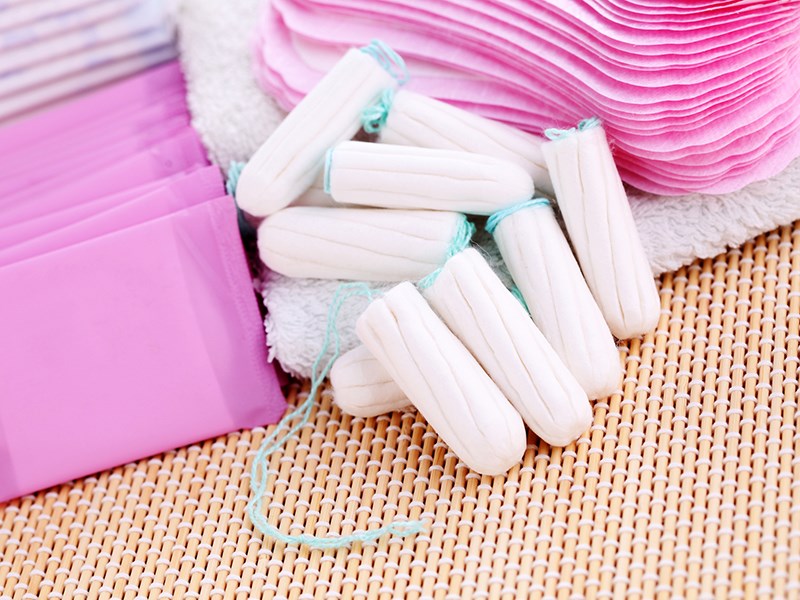We know there is a more harmonious way to live with the earth. What we don’t always know is how, which is especially true when it comes to topics considered more off limits, such as a woman's menstrual cycle.
The average woman menstruates for 38 years, which amounts to 3,500 days flowing and 275 pounds of disposable pads, tampons, applicators and packaging to the landfill.
Historically, women have used anything absorbent from nature, including moss, leaves, sea sponge, wool, papyrus, mud, dung and strips of cotton cloth. These items had their associated hygiene challenges and lack of reliability, but all held compostability in common. They all returned to the earth without a trace.
In the late 1800s, a version of the modern pad came on scene and tampons were not introduced until the 1930s. While these options increased comfort and hygiene, they also became increasingly laden with single-use plastic and synthetic materials.
Nowadays, plastic tampon applicators litter beaches around the world and plastic-lined pads are sent to landfills where they remain for centuries.
In a world where convenience sells, individually wrapped, single-use disposable pads and tampons with plastic applicators are popular choices. There is, however, a trend of women switching to reusable, eco-friendly options.
Every woman should at the very least know that the following options are available.
• A flexible, reusable cup made of either silicone (the Diva or Moon cup) or natural latex (the Keeper) are inserted into the vagina and removed and emptied every six to 12 hours as needed. Washed with soap and water, they can last up to 10 years.
• An absorptive cotton pad with leak-resistant base (Luna pads) can be snapped onto underwear and removable inserts switched out. After rinsing or soaking in cold water, these reusable pads are hand- or machine-washed with other cotton garments.
• Washable period underwear are now also on the market. Thinx have a bacteria-fighting top layer with an ultra-absorbent liner below capable of holding up to two tampons worth of flow. Snug fitting but comfortable, they are surprisingly reliable and can be used for many years.
• Applicator-free tampons are now readily available. Keep your eyes open for organic cotton and bleach-free versions.
It only seems fitting that this natural cycle for women honours the cycle of the planet. Consider these alternatives for less waste, period.
Let’s Talk Trash is Powell River Regional District’s waste-management education program.



